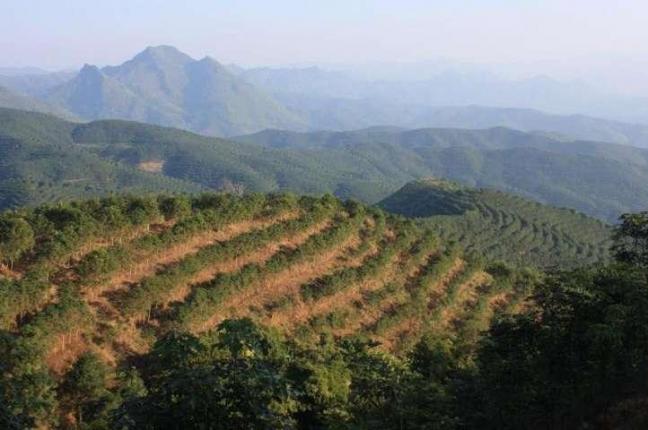KUNMING, China, July 7 (UPI) — Despite the proliferation of synthetics, industrially superior traditional rubber remains king. Accordingly, prices remain high.
As a result, rubber production has slowly been expanding out of its comfort zone in the tropics of Indonesia and into more marginal production regions of continental Southeast Asia.

While the lure of the seemingly limitless demand for rubber has persuaded many to convert farmland and forests into rubber plantations, researchers suggest real profits are elusive.
New research by scientists from the World Agroforestry Center (ICRAF) suggests widespread land conversion for rubber production could put farmers’ livelihoods at risk, leaving them with a less stable food supply and fewer sources of income. Furthermore, researchers say global warming is likely to make marginal rubber production land even less profitable.
Even more obvious, researchers suggest, are the environmental costs of rubber expansion. Expanding rubber operations are destroying forests and previously protected wilderness in Southeast Asia and southern China — shrinking the carbon-absorbing benefits of dense forest, as well as diminishing soil productivity, water availability, and biodiversity.
“There is clear potential for loss-loss scenarios when forest is being cleared for rubber plantations that are not economically sustainable, and that have negative impacts on soils and water balance,” researcher Antje Ahrends, a scienitst with the Royal Botanic Garden Edinburgh and the World Agroforestry Center, said in a press release.
A report on the economic and environmental consequences of rubber expansion was published this week in the journal Global Environmental Change.
Researchers in China, Europe and elsewhere say policy interventions may be necessary to protect local economies and ecosystems from the pitfalls of rubber expansion.
“Oil palm has received much more global attention than rubber, but in fact environmental and social impacts are comparable and the dynamics of the two are related,” explained Meine Van Noordwijk, chief science advisor at ICRAF. “It may be time for a roundtable on sustainable rubber where the private sector, public parties and scientists can try to bridge the various interests and agree on standards.”
– UPI



























